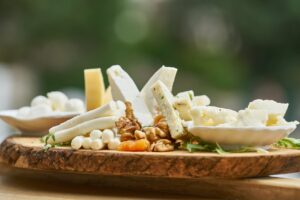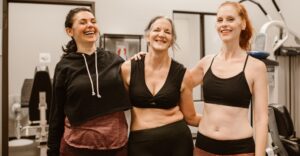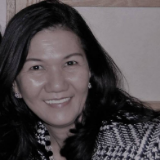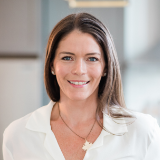Show Notes
In the latest episode with Dr. Denise Picket-Bernard, we discuss the differences between plant based, vegan and ketogenic diets. As well as touched base on nutrition for the holidays with a focus on the importance of preparing one’s food, as opposed to assembling it from ready-made ingredients. Visit her website.
Transcription
Dr. Dee: [00:00:00] It’s great to be here. I’m so happy you invited me to be a guest.
Eddie Kane: [00:00:04] Awesome. Glad you could carve out some time. So I just, I wanted to start out. One of the big things going on right now with social media and, people that are talking about nutrition is the ‘Game Changer’ documentary. So it’s for our listeners that aren’t familiar with it, it’s produced by James Cameron, and it’s a documentary that is showing elite athletes and their relationship with plant based diet and how a plant based diet is beneficial. So I was wondering if you had any thoughts on that, if you’ve seen it, and what you thought about it.
Dr. Dee: [00:00:35] Well, I haven’t seen it yet because I do not get Netflix. I don’t know if I should admit that, people might turn the podcast off right away.
I do know about it and what I do know is when you look at, an entirely plant-based, a plant based diet and then a vegan diet and a vegetarian diet are very different things. So we take the most extreme, being a vegan, if you’re a vegan athlete, an elite athlete, there’s a very good chance in order to meet the needs for protein, that the person is going to be consuming protein powder, plant based protein powder, just like somebody who was not a vegan would be consuming protein powder. So right there, that says to me, well that’s processed. So I, when I work with athletes, I like to keep them on whole foods as much as possible, so having an adequate amount of plant based protein is definitely doable without using processed, say, protein powder. It’s just work for many people. So when you look at elite athletes, many times they do have people helping them prepare their food, or they have a, you know, even college athletes will have training tables, professional athletes are served food. And so when you look at the average person who would be attempting to move in that direction, they may not be able to meet all their protein needs without really changing the way they prepare their food or the types of foods they’re eating, their meal prep. And you know, I think that you have to take something that can be done by an elite athlete and then something that would be done by an average person and figure out for the average person, what would be the best way for them to meet their needs.
And then if you have anybody who has any type of health problem where they would require, say, repairing their Gut or they require repair of their body in any way. Sometimes having animal protein provides more of the nutrients as far as the iron and various minerals that are in meat that can help a person repair faster.
So I think there’s a lot of issues that can be explored. of note, after the movie first came out, I Googled it. And at that time, a publication from the beef industry was the first thing that showed up. And, and their claim and discussion on this topic was that James Cameron’s wife has a plant, a pea protein product that she’s, producing and, you know, that’s down. I couldn’t find it. Yeah. Isn’t that it? Yeah. And I thought, well, isn’t bad. I didn’t know that. I couldn’t validate it. I can’t even find that beef industry publication anymore. So, you know, you have to look at, you know, everything. I want to see the movie. I will see it.
Eddie Kane: [00:03:34] That’s an interesting point you raised is, you know, who’s backing these studies. first of all, cause a lot of times when a study is backed by a certain person organization, it’s going to be found to prove whatever that they’re selling or pushing. And that’s seen in many different ways. If you compare it to the tobacco industry, that was a big deal for a long time. Tobacco industry would publish studies that there’s no problem with smoking cigarettes, obviously now that’s been proven false. But for a long time, that was the narrative being pushed out by the tobacco industry.
Dr. Dee: [00:04:09]In general, many documentaries have an agenda and that’s why somebody created the documentary now and again, I fall back on, I am not saying, I mean, I think that being vegan is phenomenal. If somebody can do that and an elite athlete being vegan, that could be great. You know? a kid going through puberty, being vegan, maybe they’ll, they won’t get enough protein and they could have injuries. Kids who go through puberty get injuries when they’re in sports, when they are eating meat.
Eddie Kane: [00:04:35] So we dived right in there. And I guess to zoom out a little bit, can you explain what functional nutrition therapy is since that’s one of the specialties that you are an expert in.
Dr. Dee: [00:04:47] Okay, well, functional nutrition therapy. There’s the whole topic of, of functional Medicine, and I’m certified. I’m board certified as a functional medicine practitioner. And basically functional nutrition therapy is like a subset of functional medicine. So functional medicine is looking at how and why an illness occurs. And so if a person comes in with a variety of symptoms, we use this analogy to a tree. In the traditional way of practicing medicine is if you have heart disease, you go to a cardiologist. If you have something wrong with your gut, you go to a GI doc. If you have a headache, you might go to a neurologist. Well, functional medicine is looking at, well, what is the root cause of all of these symptoms you have?
And it may not be up in the leaves of the tree. It might be down in the roots. And so by addressing the root causes, you can restore a person back to health and it’s really individualized. And it’s, it’s, it’s science-based and it is definitely evidence-based. And recently there was a publication, a study that was published by the Cleveland clinic validating some of the, functional medicine principles.
But what you’re looking at is taking each patient individually and designing a, so in the case of functional nutrition therapy, what I do, designing your complete meal plan for them that is going to address their symptoms. So people talk a lot about, you know, detox, and they’ll say, you know, they’re doing a detox drink, but the body has a liver and the liver can detoxify.
So you have phase one and phase two of Liberty toxification you have certain nutrients that would support phase one certain nutrients that would support phase two and then you have the need for antioxidants that would support any reactive oxygen species that were generated as a result of this detoxification process.
So when we’re functional medicine, we’re looking at detoxification like, well, what do, what, what should the person be consuming because their phase one isn’t working properly or they are getting through phase one, but now they’re not getting through phase two. It’s, it’s so much more than saying, just drink a green drink. And we really look at the complex nature of disease and Find that many of the symptoms the person has can be related to a root cause. We’re looking at, you know, their diet, their lifestyle, their, there’s a psychosocial, spiritual, emotional issues as well as looking at lab work.
And there’s many functional lab tests that can be done that would, Give a different picture of health, for example, doing a stool culture is going to tell what kind of, the diversity in number of microorganisms somebody has in their gut, which means we could design a protocol for somebody to give them prebiotic food that would increase the, the, Diversity and number of microorganisms, or give them probiotic rich foods, based upon what their personal, their personal test results would show.
Eddie Kane: [00:08:10] So it’s interesting because supplementation, what is, what is your view on supplementation? Going back to, we were talking previously about plant based diets or being vegan. Where does supplementation fall in line if somebody is going on one of those kinds of diets?
Dr. Dee: [00:08:29] Well, again, that would be personalized in general. My feeling about supplementation is if, if our food had in it, what we think it has is supposed to have in it. I think that people eating a variety of fruits and vegetables, primarily a plant based diet wouldn’t have a need for supplementation. However, when you look at the depletion of our soil, what we think is in our food is probably not in our food.
So, you know, like in other words, we think you’ll prove how much vitamin C is in the exact orange that you’re eating. And so, when it comes to supplements, whenever people go on a vegan diet, obviously they’re going to be consuming a lot more fruits and vegetables. And so the quality of their diet from that standpoint is probably going to be increased.
They could have a need for iron, but not necessarily, again, you know, it, it comes down to what they’re eating and how they’re making their food choices. And that’s why I say for many, like just lay people, home consumers, going full on vegan can be very challenging. You know, I’ve gone, vegan for, for a variety of reasons at various points in my life.
You know, not necessarily for any reason in particular, but just, you know, we went vegan July once, you know, I would say. Many of the meals I eat are vegan meals. Many of the meals I prepare are vegetarian meals, and then I do eat meat, so I don’t call myself a vegan or vegetarian, but if I were to make let’s say of a fried rice that was entirely vegan, that would be fine. So I think that, when you look at the supplementation, you know, you have to look at the overall quality of the diet. And then now we know with a lot of, doing the, Tests for genetic snips and whatnot. We can see that there’s people who would do better with having certain supplements.
But in general, a multivitamin is probably a good idea. You go to a lot of people who call themselves functional medicine practitioners, and really all they’re doing is selling supplements. So they switched from, instead of giving someone a prescription to selling somebody, you know, piles of vitamins.
I get people that come in my office and they will have like a shopping bag full of like 20 or 30 different supplements that various practitioners have given them. And, and that’s a lot of money. It’s a lot of money. And taking a supplement is not just going to fix the problem for most people.
Eddie Kane: [00:11:07] A lot of these supplements, there’s no real regulation.
I mean, the FDA can go in and put a label on it, but supplements can be released without needing the approval of the FDA.
Dr. Dee: [00:11:20] Yes.
Eddie Kane: [00:11:20] You have a lot on the shelf. That’s not, you don’t know what’s in it.
Dr. Dee: [00:11:23] Yeah, but that’s what I would say and that regard, going to a functional medicine practitioner in general, we all use what I say our medical grade are pharmaceutical grade supplements.
We usually work with lines that are only available to healthcare practitioners. That’s very different than just walking into any store because you can go into a discount store like a Walmart and you can get a product that would be just fine. Or product that could be adulterated and contaminated.
When you go to a practitioner of any type, you know, you, you can ask them, you know, w where do your supplements come from? You know, are they medical grade? And find out what the answer is.
Eddie Kane: [00:12:06] Yeah. You think there would be more regulation on that? I guess there’s just not the resources in the industry to check everything that is out on the shelf. And just to switch gears a little bit since we’ve been talking about plant base in, in veganism, what is your take on a ketogenic diet?
Dr. Dee: [00:12:23] You’re getting all of them in here today. A Ketogenic diet is a diet that’s like 90% fat designed for people with a neurological or seizures or seizure disorders. So then you have variations of it, which are like, people call them like an ad, cons type diet, a modified Atkins, a very low carbohydrate diet, if you will. And that is different than a true ketogenic diet. So, I think that for many people. Avoiding simple carbohydrates and limiting them is going to have a positive effect on their metabolism. You know, when you look at a ketogenic diet, what you’re talking about now is basically the opposite of like a vegan type diet at where as people are consuming larger portions of meat.
I think there’s many, many people who have insulin resistance, any kind of metabolic disregulation, limiting carbohydrates will help bring their blood sugar under control. And so then they feel better. They’re able to mfeel satisfied and they can be successful at losing weight. But when you look at overall, what would be the healthiest type of lifestyle? It would be plant-based. It would have some amounts of meat, fish, or poultry in it that were super clean, meaning, you know, no hormones, no antibiotics, no GMO, and they they would be pasture raised, humanely slaughtered in small amounts to accompany the primarily plant based diets.
So, you know, then that being said, sometimes having a low carbohydrate diet would be the best. Diet to recommend to somebody when they come in. You know, everybody’s different.
Eddie Kane: [00:14:26] Yeah. everybody is different in the way that someone can stick to a diet. I’m sure it is also important. I mean, isn’t it, doesn’t it boil down to more of a lifestyle change than just a diet?
Like what’s the benefit for two weeks to lower your cholesterol or blood pressure, possibly by cutting out sodium or whatever the case may be, but really changing your lifestyle ultimately would be the goal. Is that correct?
Dr. Dee: [00:14:50] Yeah, absolutely. Because when you look at lifestyle, you’re talking about what I talked to people about when they come in, I’ll talk about their diet and their habits. We really dig in deep to what a person, a, what was their history, what did they grow up eating? You know, people who had antibiotics when they were a kid and can really have destroyed their gut and we might need to do a whole protocol to restore their microbiome now, who prepares their food? How much food do they buy? You know, I talked to people about cooking food, and then there’s cooking food, and then there’s assembling food that’s already pre-prepared, like, buying some frozen vegetables and a jar of tomato sauce. And then making, serving that with pasta is really assembling food.
So getting people back to more, preparing their own food, and then those lifestyle pieces, how much activity do the have and we talk about neat non exercise activity thermogenesis as, so this is what we use to do all the time. People raked their own yards, they cleaned their own house, they, they cut their own lawns.
And now there’s more of, we moved to these lifestyles where either people can afford to pay for someone to do those services for them, or they’re living in apartments, facilities where that is not part of their, their lifestyle. So no, people don’t walk to work. and so that, that lifestyle activity has a piece of it.
But then also the fitness end of it, you know, preservation of muscle mass. making sure that as people are aging, they’re focusing not just on their body fat percent and how they look, but their muscle mass to keep themselves more metabolically active There’s the stress piece, you know, are people meditating that we’re learning more and more about the mind, body connection in the value for individuals of, you know, getting that connection and being more present with themselves.
And then there’s, the meditation relates to the whole stress response. So it’s really more than just, you know, go on a diet and do this. That’s not what happens when somebody would come in to see me. You know, it wouldn’t, it would be just very comprehensive. A, their sleep wake cycles.
You know, I had somebody talking to me the other day about waking like clockwork at 3:30 AM and so trying to figure out with her what was the reason for that happened.
Eddie Kane: [00:17:11] I think one of the pieces in the reasons that I wanted to cover the plant base and keto diet. Both extremes, right? I mean, if you’re doing one, you’re not doing the other. So that helps me move into our next question, which is, you know, we are going into the holidays. People are around an increased amount of food as well as many food choices. So what advice do you have for people during the holidays to keep their waistline in check? maybe somebody that’s not on a ketogenic diet or a plant based diet, cause they’re probably gonna stick with what they’re doing.
But for the general person that, you know, maybe over the holidays gains five to 10 pounds, over the course of two months, two or three months, what advice do you have for them?
Dr. Dee: [00:17:58] There’s a lot that a person can look at. The first thing I think is making sure. To maintain whatever type of exercise or activity program because it the, the amount we expand is, you know, how we can balance off what we may have eaten in excess.
I also think it’s really important to mention when you look at making and preparing your own food this time of year, it’s even more important to be preparing your own food because the problem with what we’re eating is usually not what people may put into food that they’ve prepared at home. In other words, that if a person is making soup at home. They’re making it with vegetables, with stock. They’re cutting it up themselves. They’re putting the seasonings in. If you buy soup in a can, it has much more sodium than would ever enter your, recipe that you prepared at home. The other issue is sugar. When you look at the amount of sugar that’s in the typical American diet and where it’s found, it’s found, like in pasta sauce, as the new food label notes the amount of added sugar. And so anything that’s pre-prepared, even like when you go for fast food, the French fries, the hamburger buns, they have sugar in them for coloring purposes and for flavor.
And so, if you make a pie for Thanksgiving and you want to put some sugar in it, that’s, that sugar right there is not the demon in the American diet. It’s the sugar that comes in all those manufactured foods that people cannot account for. And I shouldn’t say they cannot. People don’t, you know, reading labels and being intimately aware is something that I tell dietetic students, this all the time. This is what we do because this is our field. We think it’s no big deal. When we go to the grocery store to read, you know, the label of seven different pasta sauces because we wanted to buy pasta sauce. The average consumer does not want to put in that effort, and nor do they even have the discernment to decide which, you know, if one has more sodium and one has more sugar, which one do they pack?
Eddie Kane: [00:20:12] And are they even aware to do this? Is there enough awareness about going into a store and looking at pasta sauce? I mean, most people probably think, all right, I’m staying away from candy. So, and ice cream and those things that are typically heavy in sugar, but they’re not thinking about the hidden sugars in even barbecue sauce, for instance.
Dr. Dee: [00:20:30] Oh yeah, exactly. Exactly.
Eddie Kane: [00:20:32] So it’s more, it’s also awareness, right?
Dr. Dee: [00:20:35] Oh, that’s 100% awareness. And, you know, it’s interesting when I get clients, I’ll get people who have never read a food label. Two people who, I mean, they’ve examined and they’ve looked at everything and they’ve tried everything and they, they’re really an advocate for their own health, but they just can’t figure out one piece of it.
But yes, the average consumer feels of a comfort level of buying food at a grocery store. You know, many, many people are aware that fast food is not an ideal choice. But there are some people with lower resources and environments where they do not have that complete understanding that the fast food is not necessarily food.
It’s manufactured stuff. Most people go to the grocery store and think, well, these are all ingredients. They don’t look at the packaged foods in the middle of the aisle as potential. you know, sources for excess fat, sodium and sugar. And when you look at the access, you know, fat, it’s more because of the type of fat that it is, that it wouldn’t be, you know, like a grass fed Kerrygold butter or extra Virgin olive oil.
But it could be trans fats or just, processed oils that are heat processed. Or the type of sugar is when you make cookies, it’s a cup of sugar. When you buy some of these packaged process, it’s the high fructose corn syrup. So yeah, so looking at them with that discernment, I think the closer your food is to the natural state as possible, the better you can feel about eating. Yeah.
Eddie Kane: [00:22:11] So for the holidays with folks cooking up these great big fees like they like to do, they’re going to have family over. Your recommendation for them would be to stick to sources of food that closely resemble how they would be in nature.
Dr. Dee: [00:22:24] Yeah, well, actually what I’m saying is the holiday food, the holiday meal should be amazing. It should be something that people gather together and really enjoy and it brings memories and we don’t want to contaminate that by making some sort of, you know bastardized version of like a delicious meal. It’s those other meals that, you know, like if you have Thanksgiving on Thursday and then everybody together still on Friday, well that means Monday through Wednesday, make your own food.
Make sure those are the days that maybe those are the days you elect to have these vegan meals and make some, you know, some vegan chili or, you know, meatless chili or stir fried vegetables or eat a big salad. And then that’s how you, I think at the holidays you balance it out by really focusing on controlling what you can, cause at the holiday you don’t want, you just don’t want to ruin it.
I mean, I don’t know. I don’t want to, ruin it
Eddie Kane: [00:23:21] You want to enjoy that time. you know, I think it’s important to have this conversation that way people are aware. Cause awareness, it seems like with anything, is key. Because if you’re not aware, you can’t make the change. You can’t start to make the change.
So if you’re, if you’re more aware, then you can start to ask some of those important questions. Yeah. Okay. So what is more important? low sodium or low sugar? If there’s sugar, then did they increase the fat to make this taste better? Cause that oftentimes is the case too, right?
Dr. Dee: [00:23:48] Exactly. And then it’s a lesser quality of fat. But you know, going back to that, the holiday dinner also only eat the foods that people made. Don’t eat the foods that come pre-prepared. You know, like, so if somebody buys a pie and the, you know, from the grocery store and the cranberry sauce out of the can now, everything’s all pre-prepared.
Stay away from those food items.
Eddie Kane: [00:24:09] Just making it in house, adding your own sugar. Maybe even using a supplement, like personally I’ve switched to using Stevia.
Dr. Dee: [00:24:17] Oh yeah, yeah.
Eddie Kane: [00:24:18] And that taste for me, is very similar to sugar.
Dr. Dee: [00:24:21] Right? Well, even when you make something like an Apple pie, it doesn’t have to be super sweet because you have the sugar from the Apple anyway. you know, there’s a lot of foods you can reduce the amount of sugar and butter, but honestly, more comes from those things that are prepared outside of a person’s kitchen that are problematic.
Eddie Kane: [00:24:40] So in house, you can watch what you’re putting into it.
Dr. Dee: [00:24:43] Yes, exactly. How did you make this, and then that’s a very rich time around the holidays too, is to teach all these younger people how to cook. You know? What did you put in that? You know, people need to know how to make their own pies. You know, you don’t buy pie crust. You make pie crust.
Eddie Kane: [00:24:59] Oh, that’s a good point too. I think around the holidays is important to spend time together and cooking a meal around the holidays can really bring people together as well.
Dr. Dee: [00:25:07] Absolutely. Yeah. Cooking is really a tradition that we have to continue to pass down. And now of course you can go on YouTube and find, you know, like all these amazing cooking videos. But back in the day, you learned cooking from the person in the house who cooked. And you know, many of these recipes oh boy, you know, both of my grandmothers have passed and I in the family was the recipient of both of their cookbooks, which are, you know, their books were like journals where they wrote their recipes and talked to recipes from the newspaper, maybe had a recipe that said, you know, Joanne’s fruitcake or something, and I am the recipient of those, and so I can keep alive with them, my family, all of those traditional foods that go back to when my parents were kids, what they ate.
I think that kind of tradition passing that on is just, it’s beautiful. Makes what a family is you know, the, those traditions we have around holidays. Actually I took a picture the other day of pumpkin bread. We make ’em every year after Halloween, we’ll take a jack-o-lantern and we would cut it up and we would bake it and I would take the pumpkin from it and, you know, make pumpkin bread.
And then freeze some of it to be used for the pumpkin pie at Thanksgiving. Pumpkin bread again, and Thanksgiving. my daughter, she moved out so she needed the recipe, so I just, you know, took a picture of it and sent it to her was just really, you know, she sent me the picture of her pumpkin bread. It was beautiful. It’s just keeping the tradition alive.
Eddie Kane: [00:26:45] Yeah, definitely. That’s what the holidays are about, especially Thanksgiving.
Dr. Dee: [00:26:48] Yeah.
Eddie Kane: [00:26:49] You know giving thanks for the people that have helped us become who we are and to carry those traditions on, I think is a really rich way to celebrate the holidays.
So as we move in here to our final questions, I was wondering if you could share with us something that you’ve recently learned, whether it was from a book you’ve read or a documentary you’ve watched, what’s something you’ve recently learned? Could you share that with us?
Dr. Dee: [00:27:15] Something I’ve recently learned, well. I am learning a lot. I’ve been studying and reading articles and trying to learn a lot about the polyvagal theory, which I recommend you look up. I’m not articulate enough yet on that to talk about it, but what I have learned is a technique for reducing stress of, go to the HeartMath Institute online.
They really talk a lot about what’s called coherence and having coherence with your, your, brain and your heart and having, your enteric nervous system, which is in your gut, is connected to your central nervous system. And there’s, it’s by directional, meaning they’re sending signals in both direction so when you are under stress, one way to get your body into coherence is when you breathe in, to imagine you’re breathing in through the top of your head. And when you breathe out, imagine you’re breathing out through your chest. So now you, your lower chakras are the ones that are more related to survival.
You know, like a survival of, of you as a species with eating and sexuality in your upper chakras. If you bring yourself up into those, your heart is a very powerful, radiator of energy. And so if you are focusing on bringing energy and light and love through the top of your head and exhaling it out through your chest, not only do you bring yourself into coherence, but you’ll find that in your own system of, you know, your family, your life, that you can, that energy you radiate will affect those around you.
Eddie Kane: [00:29:04] Sure. And you know, that really raises the last question for this episode of Wellistic doses. How do you deal with stress?
Dr. Dee: [00:29:13] Well, I meditate daily, so I work out every day and then after I work out, I have a little, not a quite a meditation, more like I put my, get my, it’s like an energy thing, right? Align all my chakras and I focus them and try to get them into alignment. And then usually later in the day I will do a full on meditation where I sit there and really, try to connect and work on my energetic self.
I find if I do that on a daily basis, on a weekly basis, then I can handle stressful situations better without immediately feeling my blood pressure rise. And I think that’s the key for me. See, for some people, if they’re in a stressful position like, a lot of people, many people at work, things just happen.
So getting the body into a state where they don’t feel that stress is an important aspect of that daily meditation, but then also having techniques to deal with, you know, when stress does come up to refocus and get the body back. So I try to do it on a daily basis. And right now I am in a phase of my life where I don’t, you know, I’m not in a work environment where stressful things happen. So, it’s very, it’s been easier lately to keep things in control, but it’s very difficult for many people. You know, we’re just not raised thinking that we need to be meditating and dealing with stress and relaxing. And, you know, feeling the power of our own energy and our love. That’s just not part of most Americans. We’re raised with. So I think that’s, you know, another piece to the whole puzzle of, you know, when you look at integrative medicine, it’s really helping people integrate that part, that energetic part into their, their life. You know, acknowledging it, understanding it, honoring it.
Eddie Kane: [00:31:12] And people are more distracted too with technology being the way it is. We have so much data being thrown at us that it’s, it almost becomes an addiction with technology, our phones, with emails going off, to really sit back and put those things away and sit there in silence.
Dr. Dee: [00:31:32] Absolutely. Absolutely. Yeah. But that’s very important. There’s apps though, there’s apps for meditation.
Eddie Kane: [00:31:42] so you don’t necessarily have to put the technology away. You can, make the technology adapt to what you’re trying to accomplish.
Dr. Dee: [00:31:50] Yeah, actually that one of the apps I use in the morning, I, it plays music. It can, you can program it for however many minutes you want and what kind of a vibration you want to promote and then you can just put it on for 10 minutes. And you know, so I use an app to help me with that. And it’s amazing, you know, the Pavlovian response after had been doing it now for, I don’t know, six, eight months or so. The second that music comes on, I’m like getting right into the zone. I don’t even need to try so much anymore.
Eddie Kane: [00:32:20] it’s almost unconscious.
Dr. Dee: [00:32:22] Yeah, exactly.
Eddie Kane: [00:32:24] That’s awesome. Well, hopefully no one feels that stressed out during these holiday times that are coming up. Dr Dee I appreciate you coming on and sharing your expertise, especially around this time that people are obviously cooking these foods and are being stressed out. It’s important that someone like yourself can share insight and bring awareness to some of these issues.
Dr. Dee: [00:32:46] Well, I was happy to be here. I really appreciate that you, that you asked me. I think when it comes to the holidays and, and stress, and making food choices, I think that, people do their best. They try to do their best. And you know, I think that’s a big part of it too, is to be compassionate towards, towards yourself for making the best decisions with the information you have. And I think it’s, I think it’s terrific that your, that bringing awareness is part of one of your goals for putting these podcasts together, because you’re absolutely correct people, once people are aware, that’s the first step.







